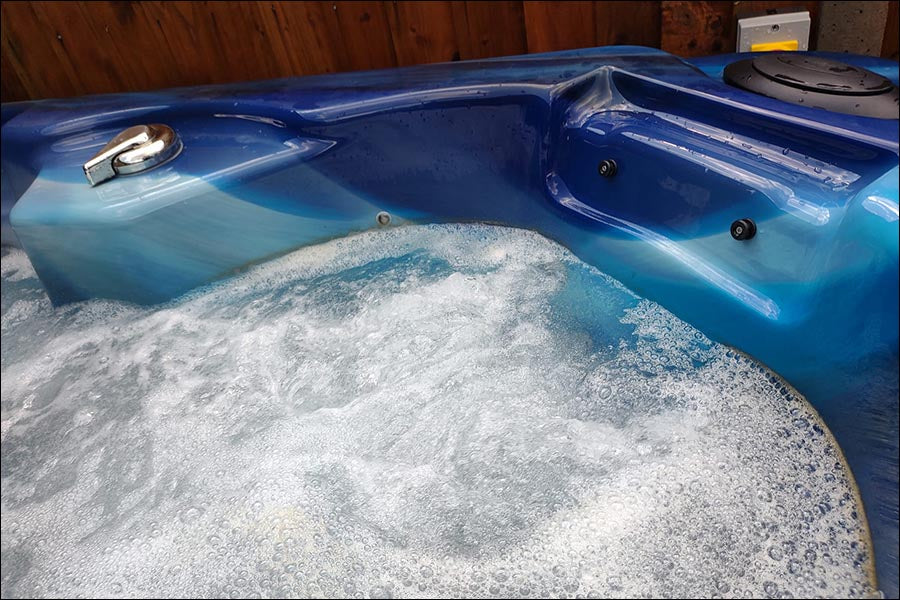Helpful Pool & Spa Advice

When Is It Time For A Spa Heater Replacement?
Replacing your spa heater can be an easy process if you have the right information and know what spa heater you need. We have developed a Heater Locator to assist in that process. You can look up your heater by spa manufacturer, spa control system number, or make and model of your hot tub.
Here is some useful information on knowing when it is time to replace your heater with a new one...
1. Recognizing The Signs Of A Failing Heater
A spa heater plays a crucial role in maintaining the comfort of your spa. Over time, wear and tear can cause it to malfunction. Common signs of failure include inconsistent water temperatures, tripping circuit breakers, and unusual noises from the heater unit. Recognizing these signs early can help prevent a complete breakdown.
- Inconsistent water temperature is a common sign of heater malfunction.
- Circuit breakers tripping indicate possible electrical issues with the heater.
- Unusual noises can signal internal problems with the heater’s components.
- Early detection can save you from an unexpected heater failure.
2. Is Repair Or Replacement The Better Option?
Once you notice signs of a failing heater, the next step is deciding between repair and replacement. In some cases, minor repairs like replacing worn-out parts may extend the heater's life. However, if the heater is over 5-7 years old or frequently requires repairs, a complete spa heater replacement may be the more cost-effective option.
- Minor repairs can extend a heater's lifespan in some cases.
- Frequent repairs or high costs may signal the need for replacement.
- Heaters over 5-7 years old often become less efficient and reliable.
- A new heater can offer improved performance and energy efficiency.
3. Types Of Spa Heaters: Which One To Choose?
When it comes to replacing your spa heater, you'll need to choose between different types of heaters, including electric heaters and gas heaters. Each has its advantages and disadvantages. Electric heaters are more common for smaller spas, while gas heaters are ideal for rapid heating and larger spa systems.
- Electric heaters are efficient and easier to install for smaller spas.
- Gas heaters offer faster heating but come with higher installation costs.
- Consider the size of your spa when choosing between electric and gas.
- Factor in operating costs and efficiency ratings.
4. Installing A Replacement Heater
Replacing a spa heater can be a DIY project for those with experience, but it’s recommended to hire a professional for the installation. Incorrect installation can result in inefficient heating or even dangerous electrical problems. A professional will ensure that the heater is installed correctly and complies with all safety regulations.
- DIY installation is possible but requires technical knowledge.
- Hiring a professional ensures the heater is properly installed and safe to use.
- Avoid potential hazards by following the manufacturer’s guidelines.
- Professional installation might offer a warranty for added peace of mind.
5. Maintenance Tips For Prolonging Heater Life
After your new heater is installed, regular maintenance is key to ensuring its longevity. Keep the spa filter clean to prevent debris from affecting the heater's performance. Monitoring water chemistry is also crucial, as unbalanced pH levels can lead to corrosion of internal components.
- Clean the filter regularly to maintain heater efficiency.
- Monitor water chemistry to avoid damage to the heater.
- Schedule annual inspections to catch potential problems early.
- Proper maintenance can significantly extend the lifespan of your new heater.
6. Energy Efficiency And Heater Replacement
If you're replacing your spa heater, it’s a great opportunity to upgrade to a more energy-efficient model. Newer heaters are often designed to use less electricity or gas, lowering your monthly energy bills. Investing in energy-efficient technology can save you money in the long term.
- Choose energy-efficient models to reduce monthly operating costs.
- Look for heaters with good energy ratings to maximize savings.
- Pair the new heater with a well-insulated spa cover to retain heat.
- Consider installing timers or thermostats for further energy savings.
7. Cost Of Spa Heater Replacement
The cost of spa heater replacement varies depending on the type of heater and whether you hire a professional. While electric heaters tend to be more affordable, gas heaters offer faster heating for larger spas. Factor in long-term savings from energy efficiency when making your decision.
- Electric heaters are generally cheaper but may take longer to heat.
- Gas heaters cost more upfront but heat larger spas faster.
- Hiring a professional adds to the cost but ensures proper installation.
- Consider long-term savings from more efficient heaters.
Key Takeaways:
- Know when to repair or replace a spa heater based on signs of failure.
- Choose the right type of heater for your spa size and heating needs.
- Proper installation is crucial to ensure safety and optimal performance of the new spa heater.
- Regular maintenance, including filter cleaning and water chemistry checks, helps prolong the life of your spa heater.
- Investing in an energy-efficient heater can result in significant savings on energy bills over time.
- Understanding the costs associated with both electric and gas heaters will aid in making an informed replacement decision.

